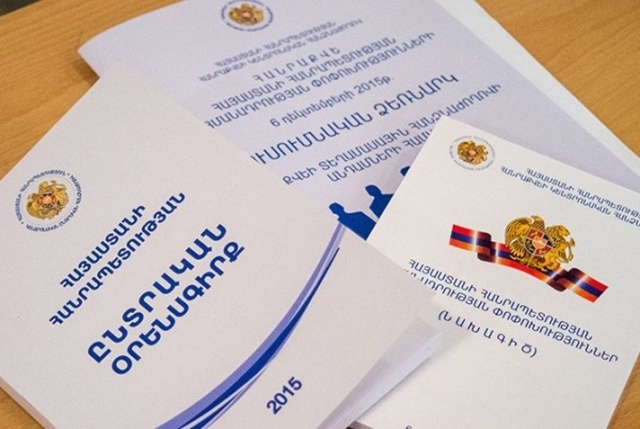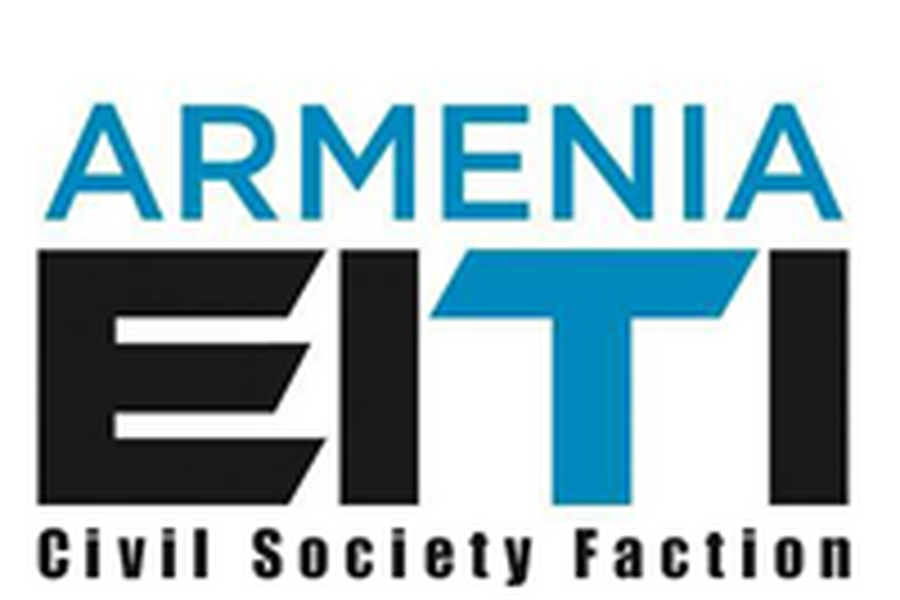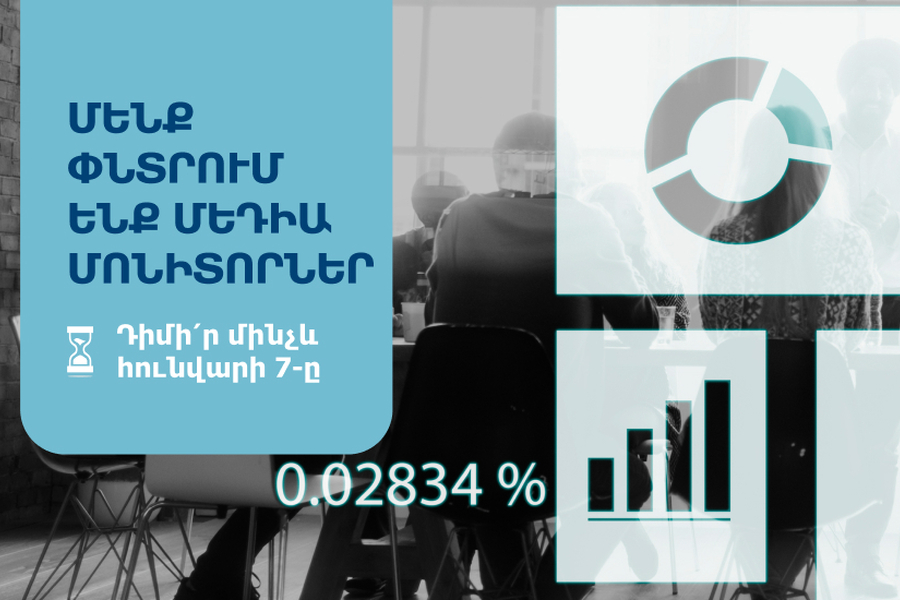Public accounting on participation in discussions of RA Electoral Code in 4+4+4 conventional format
We, the representatives of the below signed NGOs, having participated in 4+4+4 format discussions that brought together representatives of coalition government, three non-ruling political parties represented in RA National Assembly and NGOs, held on March 30, April 1, 8 and 15, 2016, record the following:
1. The meetings were mostly held in question and answer and position format. The issues that were mainly discussed were the following 5 priority recommendations agreed by a group of NGOs, and non-ruling political parties: publication of the lists signed by the voters; cleaning voter lists; holding national elections by proportional representation system with simple (closed) national proportional electoral lists; mandatory video recording of the whole process of voting and online broadcasting; application of fingerprint identification system; along with voting by one single identification document as proposed by the Prosperous Armenia Party, and publication of the preliminary voting results by district electoral commissions as proposed by Rule of Law Party. Besides, the government representatives additionally presented envisioned amendments to the voting procedure.
2. Though justifications were brought forward by the NGOs and non-ruling political parties during the discussions to reinforce all the recommendations, the proposed solutions were not accepted, as a rule, while other measures were offered instead to solve some of the raised issues. Though the proposed “concessions” partly address the raised issues and are presented as alternative solutions, they actually do not alter the current opportunities of public oversight presented in the Electoral Code in force or in the draft Electoral Code and do not create guarantees to eliminate the defective practice rooted in the electoral processes. Thus,
a. The recommendation to hold voting by a single identification document, in particular, voting by ID cards was currently considered unrealistic, based on technical limitations and, thus perpetuating the much-voiced concerns on the opportunities of multiple voting by different documents
b. The recommendation on publication of the preliminary voting results by district electoral commissions was not perceived and accepted by the government representatives, thus, affording further opportunities to falsify the results by precinct electoral commissions and central electoral commission, leaving the responsibility for it unclear
c. The recommendation on holding national elections by proportional representation system with simple (closed) national proportional electoral lists was fully rejected, thus, perpetuating the practice of obtaining the highest public representative offices of the state through interference in formation and expression of citizens’ will and falsification of the election results by vote buying and exerting pressure and intimidations by district/community/provincial criminal authorities, as well as criminal oligarchic clans. The latest obvious manifestation of such defective practice was noticed on April 17, 2016 during the election of Hrazdan and Talin town mayors, where the representatives of the Republican Party of Armenia, with impunity, bought votes and exerted pressure on socially vulnerable citizens who had administrative and/or labor dependency on the authorities. Hence, it is not surprising that the recommendation was fully rejected.
d. The recommendation on video recording of the process of voting under the state structures’ responsibility received government representatives’ “agreement.” The government representatives proposed to assist in procurement and instalment of equipment, should the non-ruling political parties and observer organizations find resources on their own. They also offered to set responsibility for the selected supplier to provide video materials, however with a requirement that the state excludes its responsibility in case of undertaking such function or in providing the video materials or in their absence (their damage or failure to provide them) as acceptance of evidence for complaints. Online broadcasting was rejected with an excuse of its technical impossibility and the risks of abusing the opportunity for broad oversight. Thus, the state refused to provide guarantees for proper organization and carrying out voting process for the infringements of voters’ expression of their free will in electoral precincts and in their vicinity; overcrowdings; violence; directing of voters; ballot box staffing; falsifying the results and other illegalities be excluded.
e. The recommendation on introduction of finger inking practice was rejected on the grounds of similar concerns regarding problems with stamping voters’ passports. The idea of application of fingerprint identification system was accepted in general, however, separately taken, without serious systemic amendments it cannot result in transparency of the electoral process, increasing oversight level and regaining public trust. On the contrary, as the experts assure, that electronic registration technology makes the voting process less visible and thus, more uncontrollable, which may cast more doubts on the legitimacy of the electoral process in view of an atmosphere of general mistrust, widespread electoral violations and impunity.
f. The recommendation on cleaning voter lists by joint efforts of state structures, non-ruling political parties and civil society via door-to-door verification, and identifying citizens who are not in the republic was rejected, by reserving the opportunity of such function only for the last 2 groups and thus excluding to assume responsibility by the state for having proper lists and using the opportunity to establish public trust.
g. The recommendation on publication of the lists signed by the voters was rejected. Instead, they offered to provide the political parties and observer organizations voters’ subsequent numbers as non-official information, which is possible to receive due to proper work of proxies and observers. In parallel, they offered a procedure of voting, in which envelopes and ballot papers will no longer be specially registered documents, neither will the stubs be. Besides, it is provided to free electronically registered voters from signing in voters’ list (the lists signed by the voters are principally eliminated).
3. We find that “the concessions” of the authority representatives separately and taken together are not able to ensure transparency and higher level of oversight of the electoral process and can in any way increase public trust in the electoral process. Moreover, the most serious limitations to public oversight introduced in parallel with the electronic system, in particular, limitation of observer organizations in polling stations; narrowing the scope of the observers’ authorization; removal of observers or mass media representatives from the polling stations by the decision of 2/3 of the precinct commission members; limitation to control signatures on ballot papers/stubs/ envelops/, as well as neglect of the recommendations of OSCE/ODIHR on considering CEC testing of observers not a prerequisite for accreditation of citizen observers; granting the legal standing to bring complaints in the electoral process more widely; as well as review of challenges to election results allowing complainants to prepare applications and ensure timely remedy make us suspect of the real purpose of the proposed electronic and other innovations and of the honesty of their application.
4. We think that even if electronic technologies theoretically reduce the impact of human factor and may serve to identify particularly one type of violation, i.e. multiple voting, in view of their application in an atmosphere of absolute lack of trust in authorities, there are reasonable doubts about their possible abuses, such as in case of mobile voters’ voting in different polling stations; application of different fingers in fingerprint identification system; abuse of the occurrence /opportunity of fingerprint legibility; and even if double voting is revealed by means of comparing the results of all precincts they may cast doubt on possible concealing. The proposed innovations are especially doubtful and non-trustful since they do not refer to the issues and problems voiced by either the ruling political parties, observation missions, or OSCE/ODIHR. They are not based on the priority requirements but are only new variables, the main purpose of introduction of which, is likely holding one more national election in favor of the incumbent authority at the expense of simply generating new ambiguity in the electoral processes, and diverting attention from electoral violations. Therefore, we consider the vast investments for introduction of electronic registration technologies inappropriate and ineffective.
5. Civil society becomes more and more convinced that the best means to ensure legitimacy of elections and a more effective and less costly manner of overseeing the elections at the given moment may be publication of the lists signed by the voters, which after voting will enable all the citizens to verify the existence/absence of signatures for both those who are absent from and present in the republic but did not participate in voting. According to the final report of OSCE/ODIHR referendum expert team published after the Constitutional referendum in Armenia “While the Venice Commission does not regard this measure as a good practice because abstention from voting may indicate a political choice, it should be noted that making marked voter lists available for public verification is not prohibited by international law. In Paragraph 18 of its 2011 General Comment No. 34 to Article 19 of the 1966 International Covenant on Civil and Political Rights, the UN Human Rights Committee stated that the right to freedom of expression ‘embraces a right of access to information... held by a public body, regardless of the form in which the information is stored. The right of access to information includes a right whereby the media has access to information on public affairs and the right of the general public to receive media output.’” It should be mentioned that providing public access to marked voter lists is successfully practiced in a number of established democracies without casting doubt on secrecy of participation in voting. It is prohibited only in neighboring Azerbaijan by the same reasoning.
6. We consider that the lists signed by the voters should be published in a place visible for all in polling stations, as well as should be accessible on internet by providing search opportunity. As a concision in case they are not ready to proactively publish the lists signed by the voters for this or that reason as a key political and civil requirements, the state bodies may
a. submit the lists signed by the voters to the political parties who participate in the elections and the observation missions under certain confidential conditions, or
b. allow the proxies and the observers to take photos or to make copies of the lists signed by the voters.
The demand to publish voter lists is an imperative and may be the main opportunity for the authorities to ensure legitimacy in the forthcoming elections.
7. We are sorry to record that despite our efforts the expected consensus was not reached. Due to the unyielding position of the state bodies of Armenia the discussions in 4+4+4 conventional format failed to give any essential positive result that might be estimated as a prerequisite to improve Armenia’s electoral system. Both the current draft of Armenia’s electoral system, and the “concessions” generated during the discussions do not solve the most important issue to regain public trust and hold free and fair elections, thus by leaving the process and outcome of all the forthcoming elections, as well the legitimacy of formation of state and local authorities under threat.
Sona Ayvazyan, “Transparency International Anticorruption Center” NGO
Levon Barseghyan, “Journalists’ Club “Asparez”” NGO
Stepan Danielyan, “Collaboration for Democracy” NGO
Tigran Yegortan, “Europe in Law Association” NGO
Artak Zeynalyan, "Rule of Right" NGO
Daniel Ioannisyan, “Union of Informed Citizens” NGO






